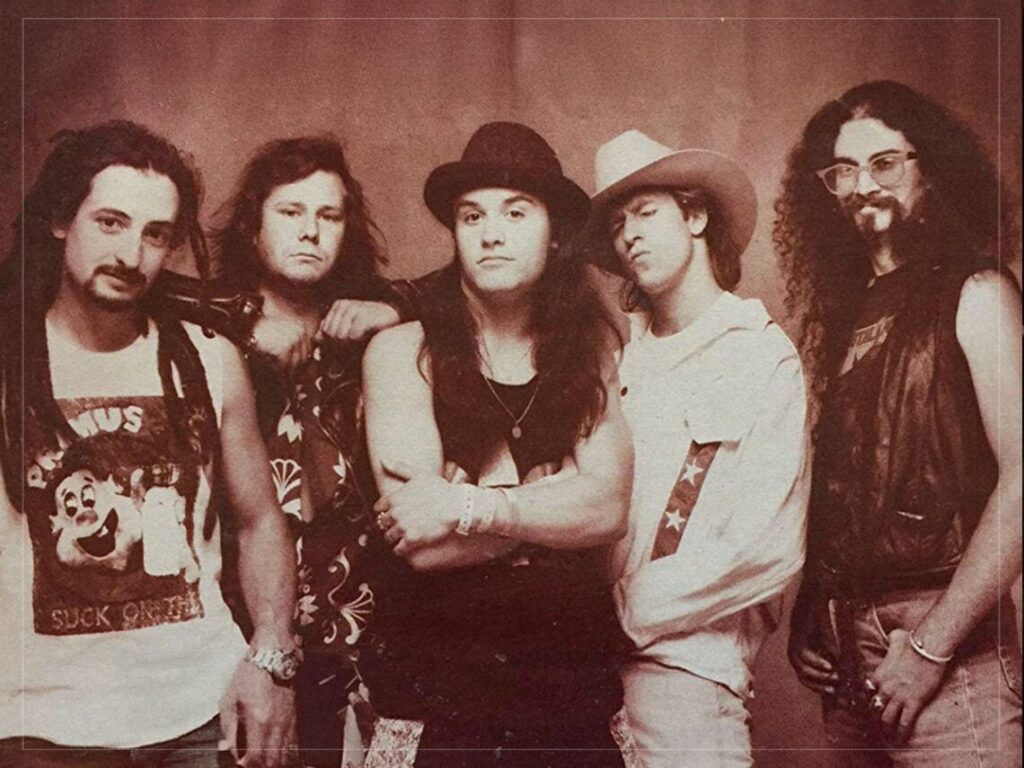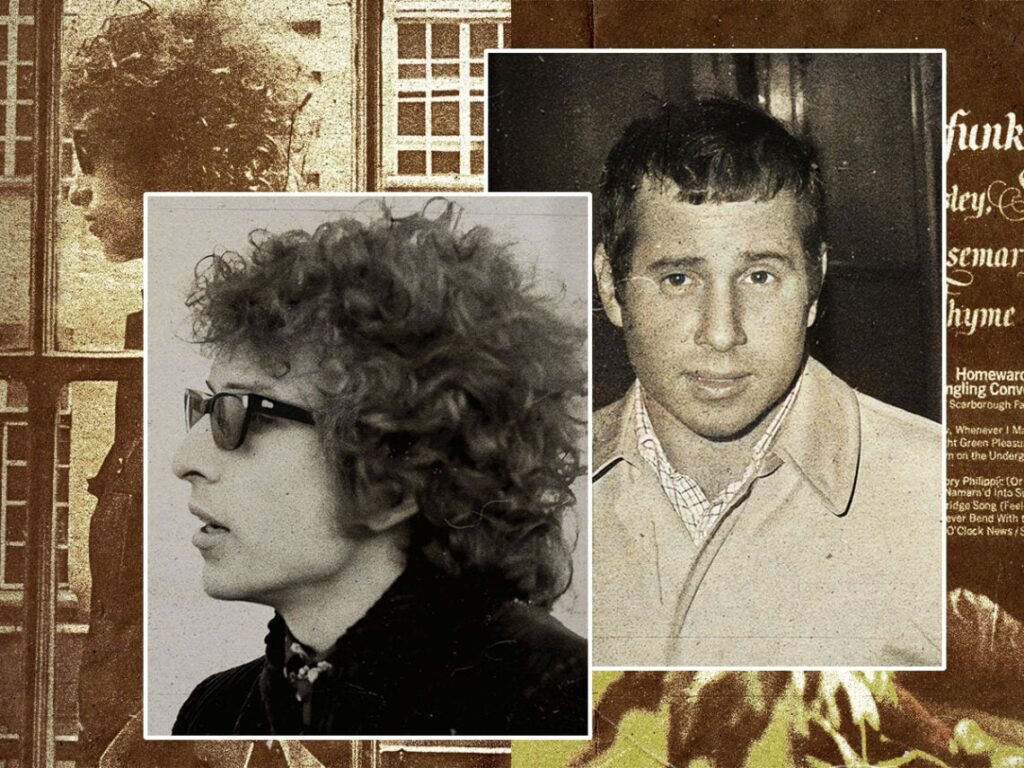Antony Langdon on Life In and After Spacehog | SPIN
 Posted On
Posted On
When Spacehog guitarist Antony Langdon was 22 and working at a production company, which included a day spent frothing beer for a Stella Artois commercial, he never envisioned his path — including stints as a bicycle messenger and cutting up melons for models as a fashion photographer assistant — would include playing in an of-the-moment rock band.
Langdon formed Spacehog in 1994 after he and his younger brother Royston both moved to New York City from their hometown Leeds, U.K.. With Antony on guitar and Royston on vocals/bass (along with drummer Jonny Cragg and guitarist Richard Steel), Spacehog shot to fame almost instantly on the strength of their first single, “In the Meantime.” The undeniably catchy tune (which sampled Penguin Cafe Orchestra’s “Telephone and Rubber Band”) shot up the charts, hitting number one on both the U.S and U.K Rock singles charts and could be heard on alternative and rock radio everywhere.
Over the course of 10 years, which included a couple of breakups and reunions, Spacehog toured with Oasis, R.E.M., Pearl Jam, and Red Hot Chili Peppers. They released four studio albums (and a live record) before they broke up for good in 2014.
In the meantime, the older Langdon also taught himself how to edit and direct in addition to having cultivated a burgeoning acting career. He’s had acting roles alongside Ewan McGregor and Christian Bale (Velvet Goldmine) and Joaquin Phoenix and Casey Affleck (I’m Still Here). Earlier this year, he portrayed Irish philosopher Edmund Burke in the historical drama The Trouble With Nature, which premiered at Rotterdam Film Festival.
Over the phone from his longtime home of Los Angeles, Langdon spoke to SPIN about his time in Spacehog and what he’s up to now.
SPIN: Did you have any idea that “In the Meantime” would be a hit?
Antony Langdon: Nobody knew that “In the Meantime” was going to be a hit. It seemed like we were the wrong fit at that time with the type of music we were making and the influences we had. There was something a bit retro about what we were doing and it felt like the glam aspect was a bit in the past when everyone was walking around in plaid and looking really grungy. But the song was really good and the great thing about the music business at that time was that you could buy some record pluggers and you could get some press on it and you could get the band out because the channels of distribution of information were relatively narrow compared to what they are now, or at least a little more manageable, so I think it was a combination of events.
Certainly, the record label got behind the band and they put their shoulders to the wheel so they in part made it a hit. I think they could get you in the top 50 or something but the song did have to do something because it had to start reacting and it did react. So then you start to believe, “Of course it was going to be a hit” but I really didn’t know.
What impact did becoming famous so quickly have on you?
Listen, it was flipping great. I’d do it all again but there are things I might do differently. I might not have made “In The Meantime” the single. It would have been nice to have slowly built and developed and understood what we were doing in the world of music and to have been more organic. As a musician or performer, you want an audience to a certain degree. You make music for yourself, but you also make it for other people who get to enjoy it or participate in it but I do think there’s a distorting factor in it. If you crave that kind of attention or if you’ve been missing it in some way, I think it’s bad for your health. It’s like you’ve never really had sugar or chocolate as a kid so then you get to a point where you become gluttonous, especially when you’re not educated in any way to understand what that sort of attention really means. I’d basically lived hand-to-mouth and never had any money and, suddenly, I didn’t have to go to work anymore. The attention and all of that is great at first. It’s like anything when you first start. It is nourishing and you do it because you feel hungry in some way.
You turned 52 last week. You seem to be in a very different and grounded place from what you’ve described.
Since my 30s, I’ve tried to make sure I’m taking care of myself in the ways that I need. I have to go for walks regularly. I’m better if I’m meditating. But then I lapse out of the good habits that are stabilizing for me and relapse into whatever behavior I’m doing. I go through everything. I go rock climbing and I become obsessive about it, then it’s ice cream, then it’s cycling and swimming, and then I pick up a packet of cigarettes for a week and it’s, “Why did I smoke? I hate smoking.” So it’s all gotten better but not without a lot of pain along the way and a lot of difficulty but, honestly, it becomes a real privilege to be alive. That feels good. I’m very optimistic. Going around and around and up and down, that’s fucking exhausting. But I don’t know that it ever goes away. I think it’s a constant state of continuing to get back on the horse but it’s leveled out a lot from where it was.
When’s the last time you heard “In the Meantime?”
I heard it on the radio when I was at Home Depot in October 2019. It was weird because I was walking down an aisle and they have a camera thing where you see your own image so I saw myself walking towards the screen and “In the Meantime” was playing and it was like I was seeing another person’s reflection as if I was someone else and that was bizarre. I wonder if I got my royalties on that. [Laughs.]
You and Royston had plenty of ups and downs while you were in Spacehog and you haven’t been in touch in a while despite being brothers.
Yes, we’ve had a lot of ups and downs which is definitely a cliché about brothers. Look at the Gallaghers. I definitely miss him. I’ve always held my brother Roy in high esteem and I think there’s a deep love between me and my brother because we were so close growing up and then we were in a band for 10 years, and you get bored with the other person’s bullshit. Everyone’s got their shit. When you’re family, you can really get inside each other’s heads. I completely love my brother but often we need a break from family members.
In addition to your music career, you’ve appeared in several films. What do you like about being an actor?
I’m nervous to call myself an actor, but acting is amazing and cathartic. The most invigorating experience I’ve ever had is when I get these moments when I’m really in the scene. It’s like meditating where you forget yourself. There’s a vast abyss where my self is at rest. I love the exploration and it brings up a lot of fear and insecurities but I love that, too. Performance is a way of communing. I’m more comfortable with that than the machinations of being polite and getting along. I don’t do well with that stuff often. I’m either overdoing it and selling myself out or underdoing it and pissing everyone off. That’s why, ironically, it’s in the performative I feel the most honest.
Are you writing new music?
Definitely. Music has a place in my life and I’m working on writing songs again at the moment but it’s not a trip down memory lane or an attempt to recapture some glory days. It’s really about the art of it and the therapy of it the catharsis of it and the sharing – the desire to heal myself and to be a healing agent in other people’s lives is important. It’s about what I can do that’s nourishing in some way to me and to others…You know, now that I’m running this all back in my mind as I talk to you, I’m thinking, ‘Jesus Christ, I’ve done quite a lot.” I didn’t realize I’ve done all this shit. I keep thinking that I’m just having lunch. [Laughs.]



